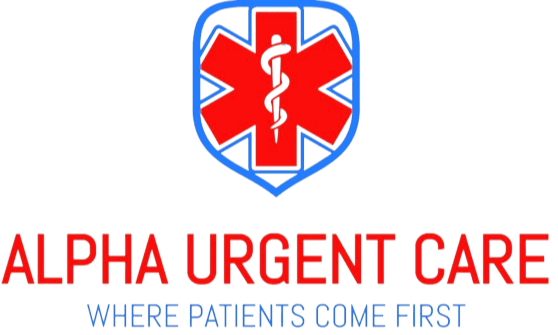Understanding STI

Understanding STIs: What You Need to Know for Your Health
Sexually transmitted infections (STIs) are common, and anyone who is sexually active can be at risk. At urgent care centers, we see many patients seeking help for STI-related concerns, and it’s important to understand how to protect yourself, recognize symptoms, and seek timely care.What Are STIs?
STIs are infections that spread through sexual contact, including vaginal, anal, and oral sex. They are caused by bacteria, viruses, or parasites. Some STIs, like chlamydia and gonorrhea, are bacterial, while others, like HIV and herpes, are viral.How Do STIs Spread?
STIs are spread through contact with bodily fluids, such as semen, vaginal fluids, or blood, and through skin-to-skin contact. Even if a person has no symptoms, they can still pass an infection to someone else.Common STIs and Their Symptoms.
ChlamydiaSymptoms: Often no symptoms, but it can cause pain during urination, abnormal discharge, or pelvic pain.
Treatment: Antibiotics, which are highly effective.
GonorrheaSymptoms: Painful urination, abnormal discharge from the genitals, or pelvic pain. It can also affect the throat or eyes.
Treatment: Antibiotics, but some strains have become resistant to common treatments, so it’s important to follow your doctor’s instructions carefully.
SyphilisSymptoms: A painless sore (chancre) usually appears on the genitals, anus, or mouth. If untreated, it can progress through stages, potentially causing serious health problems.
Treatment: Penicillin is the standard treatment.
Human Papillomavirus (HPV)Symptoms: Often no symptoms, but some types of HPV can cause genital warts. Others may increase the risk of cancer, especially cervical cancer in women.
Treatment: There’s no cure for HPV, but vaccines are available to prevent the types of HPV that cause most cancers and genital warts.
Herpes Simplex Virus (HSV)Symptoms: Painful blisters or sores on the genital area, mouth, or anus. HSV can be recurrent and may cause outbreaks over time.
Treatment: Antiviral medications can reduce symptoms and frequency of outbreaks, but the virus stays in the body.
HIV (Human Immunodeficiency Virus)Symptoms: Early symptoms resemble the flu, but some people may not experience symptoms for years. HIV weakens the immune system and can lead to AIDS (Acquired Immunodeficiency Syndrome) if untreated.
Treatment: Antiretroviral therapy (ART) can help control the virus, but there’s currently no cure.
How to Protect Yourself from STIs
How to reduce risk of STI?
Use Condoms: Condoms are one of the best ways to reduce the risk of STIs during sexual activity. They are effective in protecting against most STIs, including HIV.
Get Tested Regularly: If you’re sexually active, regular STI screenings are crucial, even if you have no symptoms. Many STIs don’t show signs but can still be transmitted.
Limit Sexual Partners: The fewer partners you have, the lower your risk of getting an STI. If you're in a monogamous relationship, both partners should get tested before engaging in unprotected sex.
Vaccination: Vaccines are available for some STIs, such as the HPV vaccine, which can protect against the types of HPV that cause most cervical cancers and genital warts.
Open Communication: Talk openly with your sexual partner(s) about STI risks, testing, and prevention.When
Should You Get Checked for an STI?
You should consider getting tested if:You’ve had unprotected sex, including vaginal, anal, or oral sex.
You notice any unusual symptoms, such as genital sores, abnormal discharge, or pain.
You’re starting a new relationship or have multiple partners.
Your partner has an STI or you suspect they might.
You’re pregnant (to prevent transmission to your baby).
STI Testing and Treatment at Urgent Care
At urgent care centers, we can provide quick, confidential STI testing, diagnosis, and treatment. Testing usually involves a urine sample, blood test, or a swab from the affected area, depending on the type of STI. Treatment may include antibiotics or antiviral medications, and your healthcare provider will guide you on the best course of action.Why STI Testing Matters
Early detection and treatment of STIs are essential to prevent complications, such as infertility, chronic pain, and the spread of infections to others. Some STIs can be cured with antibiotics, while others can be managed with medications to prevent complications. The sooner you seek care, the better your chances of a full recovery.Key Takeaways
STIs are common and can affect anyone who is sexually active.
Many STIs have no symptoms, which is why regular testing is important.
Safe sex practices, like using condoms and getting vaccinated, can help reduce the risk of infection.
If you think you might have an STI, don’t wait—seek care right away for proper testing and treatment.
Your health is important, and understanding STIs and how to protect yourself is a vital part of staying well. If you have concerns or need testing, don’t hesitate to contact and visit Alpha Urgent Care; We’re here to help you take control of your health.
Get in Touch
Quality Medical Care for You
If you or a loved one is experiencing a severe medical condition, including chest pains, severe bleeding, or broken bones, please visit the nearest hospital emergency room for immediate assistance.
Contact us today to learn more about how Alpha Urgent Care can help! We look forward to seeing you soon.
